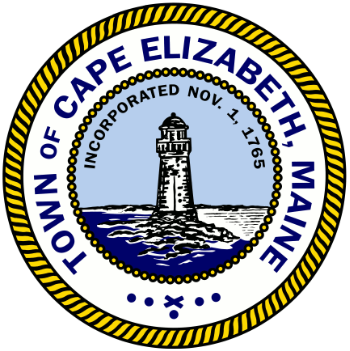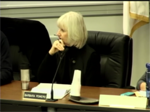12/10/2014
Councilors approve $1.75 million bond for school roofs, other capital projects
The Town Council on Dec. 8, 2014 approved the School Board's request for a $1.75 million bond to fund capital improvements to school facilities.
The bond will fund five separate projects, including replacement of roofs on all three Cape Elizabeth schools, a roof-top heating recovery unit for the Middle School, and electrical systems upgrades to the High School.
Michael Moore, chair of the School Board's finance committee, told councilors at their meeting Dec. 8 that the assets the bond would replace range in age from 25-40 years old.
"We wish we could move out roofing projects another 14 years but unfortunately, as we've learned, you can't - there is an impact in not maintaining roofs," Moore said. Funding through a 20-year bond spreads the cost over the life of the asset, he said.
The bond is part of a $14 million capital improvement plan for school and Community Services facilities, including the Richards Pool, over the next 10 years. The plan calls for $3.7 million in bonds to help fund the projects.
Councilors on Dec. 8 lauded the School Board for its planning process, which, Moore said, was three years in the making. "In October 2011 we formed a building-and-grounds committee, and through the three-year planning process included all stakeholders, teachers, students, citizens, the Town Council in a joint workshop, finance committee and the School Board. The result of that planning process is the bond request before you tonight," he told councilors.
The plan assumes an interest rate of 4 percent, but Moore said interest rates have come down to the 2.57 percent used in the Thomas Memorial Library building project funding analysis, meaning a projected average interest expense of $23,000 a year for the school bond. Town Manager Michael McGovern said the most recent figure from the Town's financial advisor is 2.34 percent, significantly less than proposed in the school bond request.
At the same time, reduced debt service from retired 1994 bonds is expected to offset capital improvement costs - interest, principal payments and budgeted funding - for the next three years, Moore said. "The hope is, for school budget spending for CIP only, we can maintain that as a flat level while at the same time addressing some significant capital-improvement needs," he said.
Announcing the council's approval to the School Board Dec. 9, Moore said that although the first round of bonding for the 10-year plan has been approved, the largest portion of funding will come from disciplined annual budgeting. "Citizens should expect larger capital improvement expenditures in the (school) budget in the next few years versus the prior 10 years," he said. "This is all part of the long-term plan to maintain the assets we have," Moore said.

 Dec. 8, 2014 Town Council meeting
Dec. 8, 2014 Town Council meeting Dec. 9, 2014 School Board meeting
Dec. 9, 2014 School Board meeting